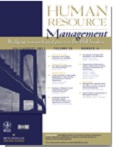 When we speak of international assignees and their value, we tend to think about an expatriate employee moving from headquarters (HQ) to one of the company’s subsidiaries. A key purpose of this expatriation is the sharing of knowledge. However, it also involves the assignee to lead the implementation of certain practices and strategies, fill specific positions, promote the HQ corporate culture, and ensure the coordination and control of the different subsidiaries. Many of these purposes can be subsumed under the overarching goal to better connect the HQ with its foreign subsidiaries.
When we speak of international assignees and their value, we tend to think about an expatriate employee moving from headquarters (HQ) to one of the company’s subsidiaries. A key purpose of this expatriation is the sharing of knowledge. However, it also involves the assignee to lead the implementation of certain practices and strategies, fill specific positions, promote the HQ corporate culture, and ensure the coordination and control of the different subsidiaries. Many of these purposes can be subsumed under the overarching goal to better connect the HQ with its foreign subsidiaries.
However, the role of connectors or so-called linking pins can be fulfilled not only by HQ staff transferred to a subsidiary, but also in the other direction. Over the past decade, the inpatriation of subsidiary staff into the company’s HQ has increased and started to become another source of linking pins. Thus, contrary to the term ‘expatriate’, an inpatriate is an employee that is transferred from a foreign subsidiary to the HQ.
So far, there has been very little empirical evidence about inpatriates and their roles as connectors and conduits of knowledge sharing. I therefore conducted a large-scale survey of inpatriates assigned to the HQs of German multinationals. My study not only highlights the importance of these two roles but also brings up important determinants that facilitate inpatriates’ effectiveness in these roles. First of all, my findings indicate that these two inpatriate roles are interrelated, in the sense that developing more connections between HQ and subsidiary also facilitates knowledge sharing.
At the same time, it is important to note that inpatriates’ motivation and effort to fulfil these two roles are not the only important determinants. What also matters are HQ employees and their motivation and ability to absorb knowledge and engage in social relationships with inpatriates. Therefore, if a company wants to gain value from inpatriates’ connecting ties between their home unit and the HQ, it must provide organizational support to the actual assignee by involving HQ staff in the inpatriation process. This can be done by the means of intercultural training that facilitates effective interactions. HQ staff acceptance of and positive attitudes towards inpatriates can help inpatriates to more actively share knowledge and develop social relationships.
Additionally, inpatriate mentoring that is provided by HQ staff can signal an inpatriate’s value during the assignment. For example, given inpatriates’ status as newcomers to the HQ that often come from smaller subsidiaries and/or less developed countries, HQ staff may not perceive the assignee as a credible and valuable source of knowledge. As a result, HQ staff may be less inclined to obtain knowledge from an inpatriate. This can be avoided if senior HQ managers take the role to mentor inpatriates, thereby signalling the importance of inpatriates and increasing the motivation of HQ staff for knowledge transfer. HQ managers also need to communicate the value that inpatriates provide for the HQ more explicitly.
In sum, my study highlights that the mere assignment of inpatriates to the HQ does not automatically make them linking pins between the company HQ and its subsidiaries and increase knowledge flows in the company. It does demonstrate though that under certain conditions knowledge transfer is generated through inpatriate’s brokerage of home- and host-unit social ties. Apart from inpatriates’ own efforts, these conditions involve the support, motivation to absorb knowledge and mentoring by HQ staff.
Further reading:
Reiche, B.S. (2011). Knowledge transfer in multinationals: The role of inpatriates’ boundary spanning. Human Resource Management, 50(3): 365-389.

